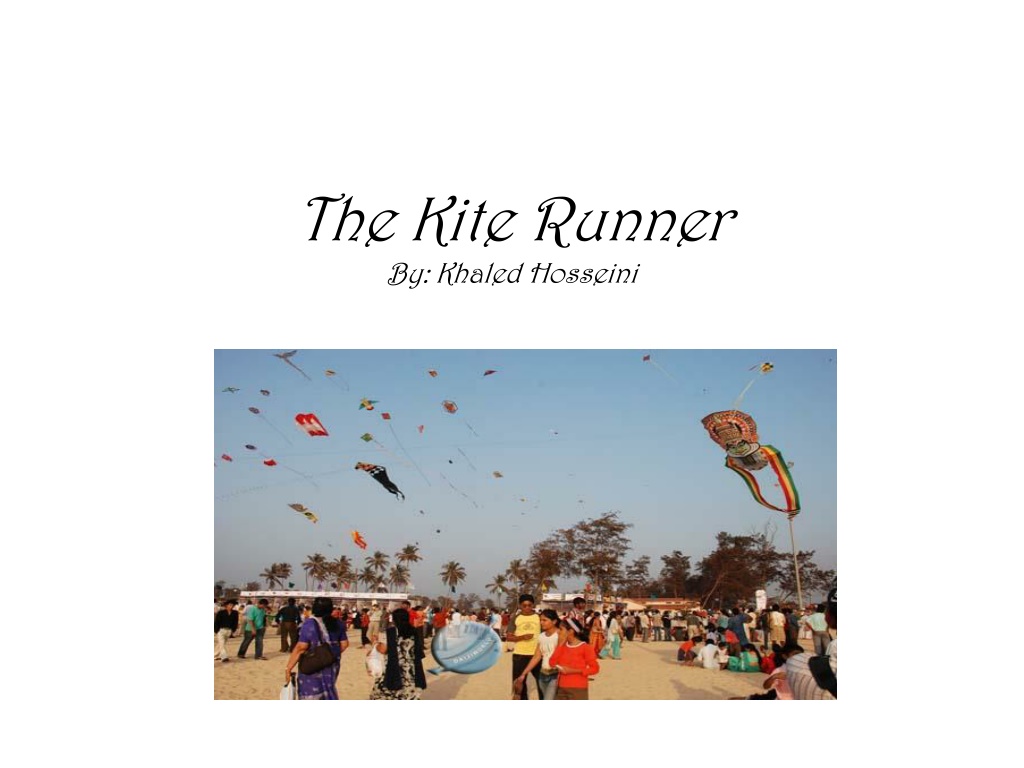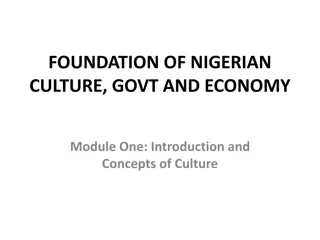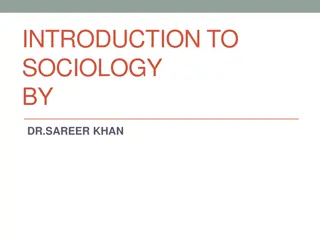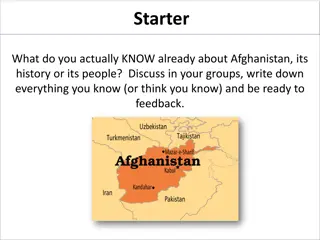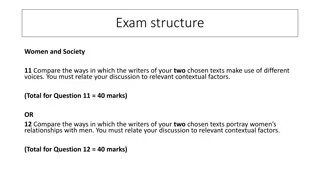Insights into Khaled Hosseini and Afghan Culture
Explore the captivating journey of Khaled Hosseini, from his upbringing in Kabul to the publication of his acclaimed novel "The Kite Runner." Delve into the rich history of Afghanistan, the tribal system, and age-old traditions that shape the Afghan society. Uncover the complexities of Afghan culture, from hospitality and honor to religious customs and social etiquette.
Download Presentation

Please find below an Image/Link to download the presentation.
The content on the website is provided AS IS for your information and personal use only. It may not be sold, licensed, or shared on other websites without obtaining consent from the author. Download presentation by click this link. If you encounter any issues during the download, it is possible that the publisher has removed the file from their server.
E N D
Presentation Transcript
The Kite Runner By: Khaled Hosseini
Khaled Hossieini Born in Kabul, Afghanistan 1965. His family lived in the affluent Wazir Akbar Khan district of the city. His father was a diplomat with the Afghan Foreign Ministry and his mother taught Farsi and History. Khaled loved kite running, western movies, and reading. In 1976 the Afghan Foreign Ministry relocated the Hossieni family to Paris. In 1980 they wanted to return to Kabul but it had undergone an invasion by the Soviet Army. Hossieni family was granted political asylum in the United States. 1980 relocated to San Jose, California. Khaled was 15. Khald graduated high school in 1984 and received his Medical Degree in1993 which he then completed an his residency. While in medical school The Kite Runner was penned. After 27 years of being away from Afghanistan, Khaled returned after he published The Kite Runner. The Kite Runner is Khaled s first novel
The Kite Runner Introduction First Afghan novel to be written in English Over 9 million copies sold world wide Is on the list of Banned and Challenged books Kite Running is a popular Afghan pastime The Kite Runner take place in Afghanistan, Pakistan and America (1970 s-2000 s).
History of Afghanistan Daud Khan ruled from 1953-1963. He resigned in 1963. Zahir Shah is elected and institutes a constitution that is voted upon and well received. In 1973 Daud Khan returns to power with military support in an almost bloodless coup. In 1979 Daud Khan is overthrown and family killed because he was going back to his old ways. Battles ensue, Afghan against Afghan because some people wanted to westernize and others did not. Still on going
Tribal System Hierarchical network of several tribes >Pashtun Pashtun: : Most numerous and most powerful > Hazara Hazara: : Least powerful tribe, mountain dwellers
Afghan Traditions Afghan s are a very proud people, of their land and religion. Very loyal to their local leaders then their tribe. Hospitality and honor are the top two characterisitcs of Afghan people.No matter who you are, if you visit a home you will be given the best the family has. Followers of Islam.Pray 5 times a day. They believe that Islamic law permits every 'believer' to maintain arms when directed by the ruler. Afghans greet one another with the phrase Assalamu Alaikum, which means 'Peace be with you . Women and men never shake hands or make eye contact in Afghan society. Between men eye contact is acceptable as long as it is not prolonged - it is best to only occasionally look someone in the eyes. When eating, Afghan s sit on the floor and eat with their hands. For women wearing skirts and sleeveless will mean disrespecting the Afghan culture and are a strict no-no. Women are expected to cover their heads and chest and do not shake hands with men. Men and women should never be left alone in the same room (only family) and never touch. Friday is their holy day. Families arrange marriages. Factors such as tribe, status, network, and wealth are the major factors forming any choice. No alcohol
Bacha bazi Defined as: adolescent boys who are sold to wealthy or powerful men for entertainment and sexual activities. >This business thrives in Afghanistan, where many men keep them as status symbols > Men have these boys because the Afghan women are unapproachable. >Afghan men cannot talk to an unrelated woman until after proposing marriage. Before then, they can't even look at a woman, except perhaps her feet. Otherwise she is covered, head to ankle. > The owning of a bacha bazi is culturally acceptable in Afghanistan.
http://www.sfgate.com/opinion/brinkley/article/Afghanistan-s-dirty-little-secret-3176762.phphttp://www.sfgate.com/opinion/brinkley/article/Afghanistan-s-dirty-little-secret-3176762.php
